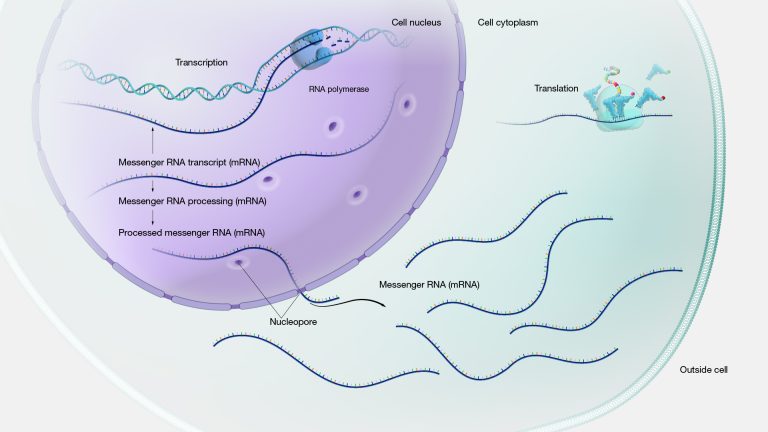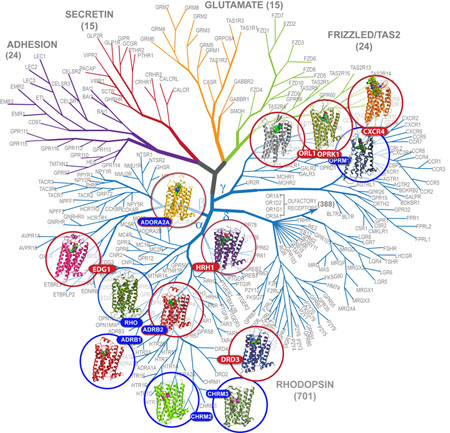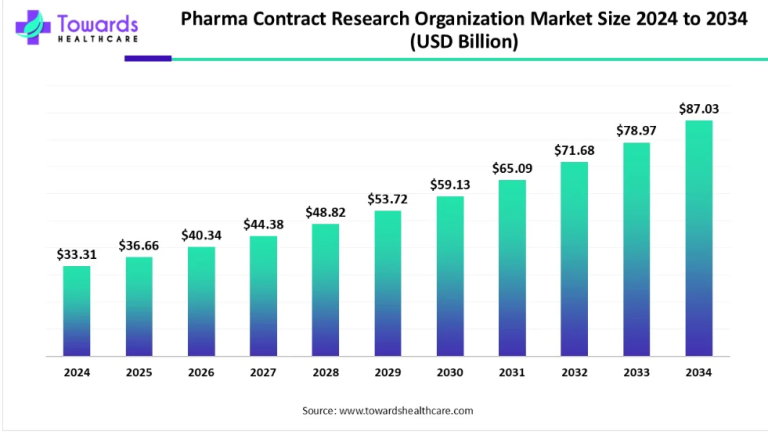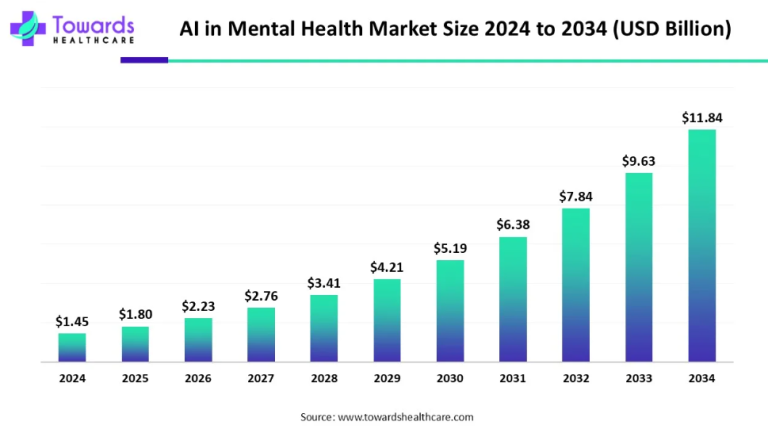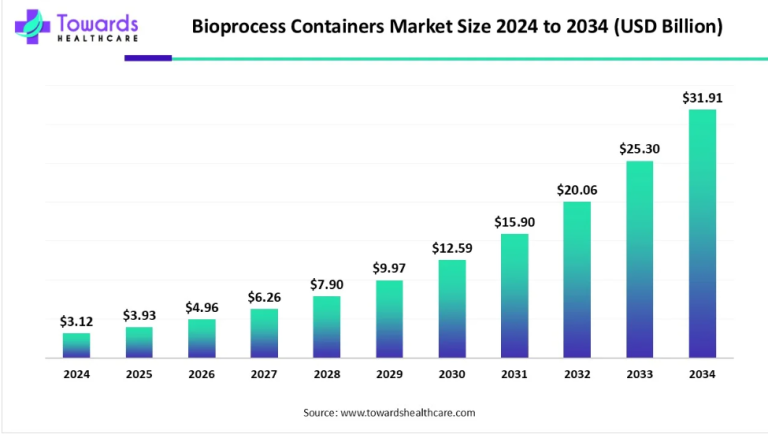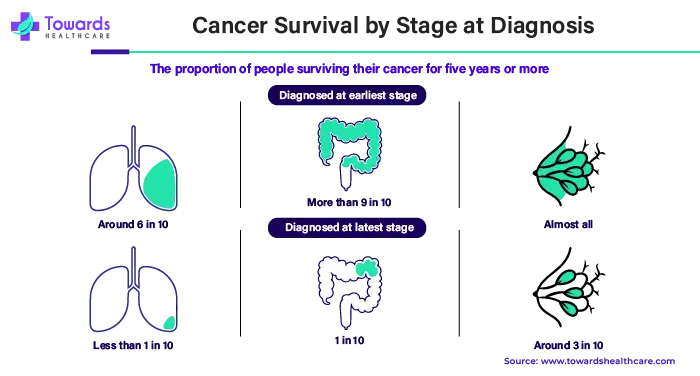
Advancements in Molecular Diagnostics for Early Disease Detection and Improved Patient Outcomes
Molecular diagnostics has emerged as a sensitive and largely accurate method for early detection of infectious diseases, with significant applications in improving patient outcomes. The COVID-19 pandemic accelerated the adoption of such methods due to the crucial need for early disease detection. These diagnostics offer the advantage of detecting biomarkers at very low concentrations, enabling early diagnosis. They are also affordable and can be conducted at the point of care. Detection methods include DNA sequencing, microarrays, fluorescent probes, and Fluorescence In-Situ Hybridization.
One significant challenge in early diagnosis is faced by infants born to HIV-positive mothers. Maternal antibodies crossing the placenta can interfere with antibody-based HIV tests for up to 18 months, delaying definitive diagnosis. However, qualitative nucleic acid testing has become the predominant method for identifying HIV infection in young infants. These assays directly identify viral components such as HIV pro-viral DNA or RNA, avoiding the problem of maternal antibodies. For example, the COBAS AmpliPrep/COBAS TaqMan HIV-1 Qualitative Test requires only 70 µl of whole blood or a dry blood spot and accurately detects specific sections (gag and LTR) of the HIV-1 genome.
Successful treatment and improved patient survival rates are significantly possible with molecular diagnostics. Diagnostic biomarkers enable the identification of diseases at the earliest possible stage, facilitating reliable treatment initiation. The demand for early identification of cancer and infectious disorders is driving the need for more efficient molecular diagnostic techniques.
In 2020, a WHO-recommended rapid molecular test was utilized as the initial diagnostic test for 1.9 million (33%) of the 5.8 million people newly diagnosed with tuberculosis globally, up from 28% in 2019. There was significant diversity across countries, with the largest percentages attained in the WHO African and European regions. Globally, 73% of the 5.8 million people newly diagnosed with tuberculosis had a recorded HIV test result, up from 70% in 2019.
The growing need for early disease detection is stimulating research and development efforts for innovative tests capable of detecting diseases earlier and more accurately. The market is witnessing an increase in the usage of these new tests in various healthcare settings, from specialized cancer centers to ordinary clinical practices.
Download a sample of this report @ https://www.towardshealthcare.com/personalized-scope/5150
Advancements in Molecular Diagnostics Fueling Market Expansion
Molecular diagnostics has revolutionized healthcare by enabling precise and sensitive disease diagnosis at the molecular level. Recent innovations are propelling this sector forward, resulting in substantial growth in the molecular diagnostics market. Here’s an overview of major advancements and their impact:
- Next-generation sequencing (NGS): NGS allows parallel analysis of entire genomes or focused gene panels, enhancing genetic profiling for disease diagnosis, personalized medicine, and drug resistance testing.
- Digital PCR: Outperforms traditional PCR in sensitivity and precision, enabling the detection of rare mutations and minimal residual disease.
- Microfluidic chips: Miniaturized diagnostic assays on microfluidic chips enable portable, point-of-care examinations, facilitating faster and more accessible diagnostics.
- CRISPR technology: Holds potential for disease identification, antimicrobial resistance studies, and therapeutic gene editing.
Impact on Market Growth:
- Diversification of applications into infectious diseases, genetic disorders, oncology, pharmacogenomics, and personalized medicine drives market growth.
- Improved accuracy and speed lead to earlier and more accurate diagnoses, enhancing patient outcomes.
- Rapid point-of-care tests expedite decision-making in critical care situations, improving patient management efficiency.
- Molecular diagnostics enable personalized medicine by providing insights into an individual’s genetic makeup and drug responses, resulting in tailored medicines and improved treatment outcomes.
- Accessibility in resource-constrained environments is enhanced by point-of-care testing and microfluidic developments, contributing to global market expansion.
Examples:
- Molecular technologies like PCR and LAMP testing have played crucial roles in COVID-19 response, showcasing the power of quick diagnostics.
- Non-invasive prenatal testing (NIPT) utilizing NGS-based analysis of fetal DNA in maternal blood provides a safer and more accurate alternative to standard amniocentesis.
Rise in Demand for Cancer and Infectious Disease Detection Augments Molecular Diagnostics
Cancer and infectious diseases pose significant threats to global health. According to the World Health Organization (WHO), cancer is the second leading cause of death worldwide, while infectious diseases continue to cause morbidity and mortality, particularly in low-income countries.
Key Points:
- Population aging, lifestyle changes, and emerging infections contribute to the rising prevalence of cancer and infectious diseases.
- Early diagnosis is crucial for improving patient outcomes and reducing mortality rates.
- Molecular diagnostics enable early detection by detecting specific genetic changes or diseases at the molecular level, often before symptoms appear.
- Advantages include the ability to detect trace amounts of cancer cells or infections, analyze multiple targets simultaneously, and use minimally invasive samples like blood.
Examples:
- Liquid biopsies identify circulating tumor DNA (ctDNA), aiding in early cancer detection and surveillance.
- Rapid diagnostic tests for infectious diseases swiftly identify pathogens, allowing for targeted antibiotic treatment and resistance management.
The increasing demand for early cancer and infectious disease detection is driving the growth of the molecular diagnostics market. As demand for accurate and rapid diagnosis continues to rise, further advancements in molecular testing technology are expected to revolutionize healthcare approaches to these challenging health conditions.
To own our research study instantly, Click here @ https://www.towardshealthcare.com/price/5150
Read more about Molecular Diagnostics Market:
You can place an order or ask any questions, please feel free to contact us at sales@towardshealthcare.com
About Us
Healthcare Web Wire is a premier subsidiary of Towards Healthcare, dedicated to providing comprehensive insights and information related to the healthcare industry. With a commitment to delivering accurate and timely updates, Healthcare Web Wire serves as a vital resource for professionals, enthusiasts, and stakeholders within the healthcare sector. Our platform serves as a central hub for the latest news, trends and developments shaping the healthcare landscape. Join us on Healthcare Web Wire and become part of a vibrant community dedicated to advancing healthcare knowledge and shaping the future of healthcare worldwide.
Explore the comprehensive statistics and insights on healthcare industry data and its associated segmentation: Get a Subscription
For Latest Update Follow Us: https://www.linkedin.com/company/towards-healthcare
